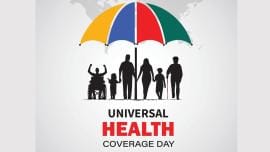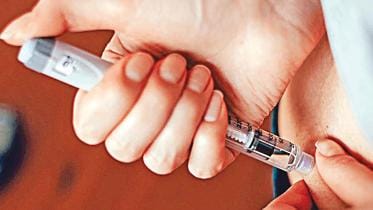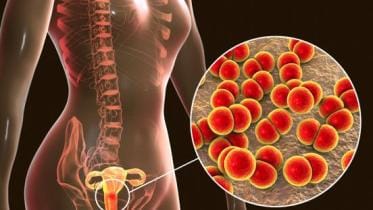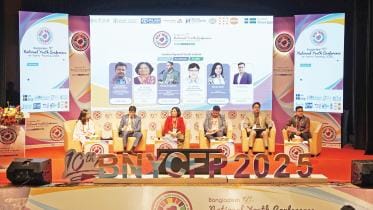Your eyes blink in time with the music!
3 January 2026, 18:27 PM
Health
CPAP therapy offers hope for people with diabetes and sleep apnoea
3 January 2026, 18:00 PM
Health
Millions left behind: Global push to make health care affordable by 2030
3 January 2026, 18:00 PM
Health
Precision, compassion and progress: How modern oncology is redefining cancer care
3 January 2026, 18:00 PM
Health
Gestational diabetes linked to lower cognitive scores in mothers and higher developmental risks for children
3 January 2026, 18:00 PM
Health
When winters change, our health does too!
3 January 2026, 18:00 PM
Health
When AIs collaborate, accuracy in medicine improves
3 January 2026, 18:00 PM
Health
Endometriosis: The common condition affecting millions of women worldwide
27 December 2025, 18:00 PM
Health
Gaibe Ora, Shunbe Prithibi: Hearing-impaired children redefine the power of music
27 December 2025, 18:00 PM
Health
Drug-resistant bloodstream infections set to rise across Europe
27 December 2025, 18:00 PM
Health
CPAP therapy offers hope for people with diabetes and sleep apnoea
People with type 2 diabetes (T2D) who also have obstructive sleep apnoea (OSA) face serious health risks, including higher chances of heart problems, stroke, and premature death.
3 January 2026, 18:00 PM
Millions left behind: Global push to make health care affordable by 2030
Since 2000, most countries have made progress in expanding health service coverage and reducing the financial burden of health care, according to the Universal Health Coverage (UHC) Global Monitoring Report 2025 from the World Health Organisation (WHO) and the World Bank.
3 January 2026, 18:00 PM
Precision, compassion and progress: How modern oncology is redefining cancer care
Cancer care is undergoing a quiet but profound transformation, driven by technology, better understanding of disease biology, and a growing emphasis on quality of life.
3 January 2026, 18:00 PM
Gestational diabetes linked to lower cognitive scores in mothers and higher developmental risks for children
A major new review of global research suggests that gestational diabetes during pregnancy may affect brain health in both mothers and their children. The findings were presented at the European Association for the Study of Diabetes (EASD) Annual Meeting in Vienna.
3 January 2026, 18:00 PM
When winters change, our health does too!
Dr Muhammad Mahtab Hossain Mazed.Winter in Bangladesh is no longer as predictable as it used to be. In the past, winter meant a light morning fog, some sunshine in the afternoon, and intense cold at night. However, in recent years, it has been observed that in many areas, sunlight is absen
3 January 2026, 18:00 PM
When AIs collaborate, accuracy in medicine improves
The growing use of Artificial intelligence (AI) in healthcare has raised questions about how trustworthy these systems really are. According to a new study published in the journal PLOS Medicine, researchers have found that AI systems work more accurately when they “think together” rather than alone.
3 January 2026, 18:00 PM
Endometriosis: The common condition affecting millions of women worldwide
Endometriosis affects an estimated 10% of women of reproductive age globally, around 190 million people.
27 December 2025, 18:00 PM
Gaibe Ora, Shunbe Prithibi: Hearing-impaired children redefine the power of music
Shono Bangladesh Hearing & Speech Clinic, an organisation dedicated to improving the quality of life of children with hearing and speech impairments,
27 December 2025, 18:00 PM
Drug-resistant bloodstream infections set to rise across Europe
A new study has warned that bloodstream infections caused by drug-resistant bacteria are expected to rise significantly across Europe over the next few decades, largely due to ageing populations. T
27 December 2025, 18:00 PM
Global review reinforced vaccine safety on autism!
A new analysis from a World Health Organisation (WHO) global expert committee found no evidence of a causal link between vaccines and autism spectrum disorders (ASD), reaffirming WHO’s long-standing position on vaccine safety.
27 December 2025, 18:00 PM
Ultra-processed foods under fire as experts called for global action!
A major new three-paper series published in The Lancet warned that the rapid rise of ultra-processed foods (UPFs) in diets around the world had become an urgent public health issue and required coordinated government action.
27 December 2025, 18:00 PM
Protect your hands
You must have often heard your relatives or acquaintances saying that their fingers become numb in cold or snowy weather and often turn blue and swollen and cause severe pain. Sometimes, when one spends a lot of time in snowy weather, fingers turn black. Have you ever wondered why this happens?
27 December 2025, 18:00 PM
Fewer infections, more chronic illness: The world’s changing health crisis
The world has achieved impressive success in reducing deaths from infectious diseases. Since the 1990s, illnesses such as tuberculosis, malaria and HIV/AIDS have caused far fewer deaths and disabilities, while survival among newborns has improved dramatically.
13 December 2025, 18:00 PM
New guidance backed: GLP-1 therapies in fight against global obesity
The World Health Organisation (WHO) released its first guideline on the use of Glucagon-Like Peptide-1 (GLP-1) therapies to address obesity, a growing global health challenge affecting more than 1 billion people worldwide.
13 December 2025, 18:00 PM
Single-dose drug shows promise against drug-resistant gonorrhoea
A new oral medicine called zoliflodacin is showing strong potential as a treatment for antibiotic-resistant gonorrhoea, according to a phase 3 clinical trial published in The Lancet. The study found that a single dose of the drug worked just as well as the current standard treatment, which involves an injection of ceftriaxone followed by oral azithromycin.
13 December 2025, 18:00 PM
Empowering youth for a healthier future
The 10th National Youth Family Planning Conference of Bangladesh (BNYCFP) was successfully held on 11 December 2025, bringing together over 500 youth representatives, policymakers, health experts, and stakeholders from across the country, says a press release.
13 December 2025, 18:00 PM
Bangladesh’s untapped goldmine: Why Bangladesh is missing the ayurvedic market boom
Bangladesh has a long tradition of using alternative medicine – mainly Ayurvedic and Unani – alongside modern allopathic care. From village kavirajs to branded herbal tonics in urban pharmacies, plant-based remedies remain a first line of treatment for many people.
13 December 2025, 17:49 PM
Retrogradation: When starch takes a step backward and why it matters
Retrogradation sounds like a nostalgic move from a retro fashion show, but in the quiet chemistry of our everyday foods, it is a small rebellion of starch molecules.
13 December 2025, 17:49 PM
Why do we obey even when we do not fully agree?
Imagine you are in a queue at an office. A staff member suddenly tells everyone to shift to a different line because ‘this one is closed.’ No explanation.
6 December 2025, 18:00 PM
Making fertility care fairer: WHO issued first global infertility guideline
The World Health Organisation (WHO) called on countries to make fertility care safer, fairer and more affordable as it released its first-ever global guideline for the prevention, diagnosis and treatment of infertility.
6 December 2025, 18:00 PM





























